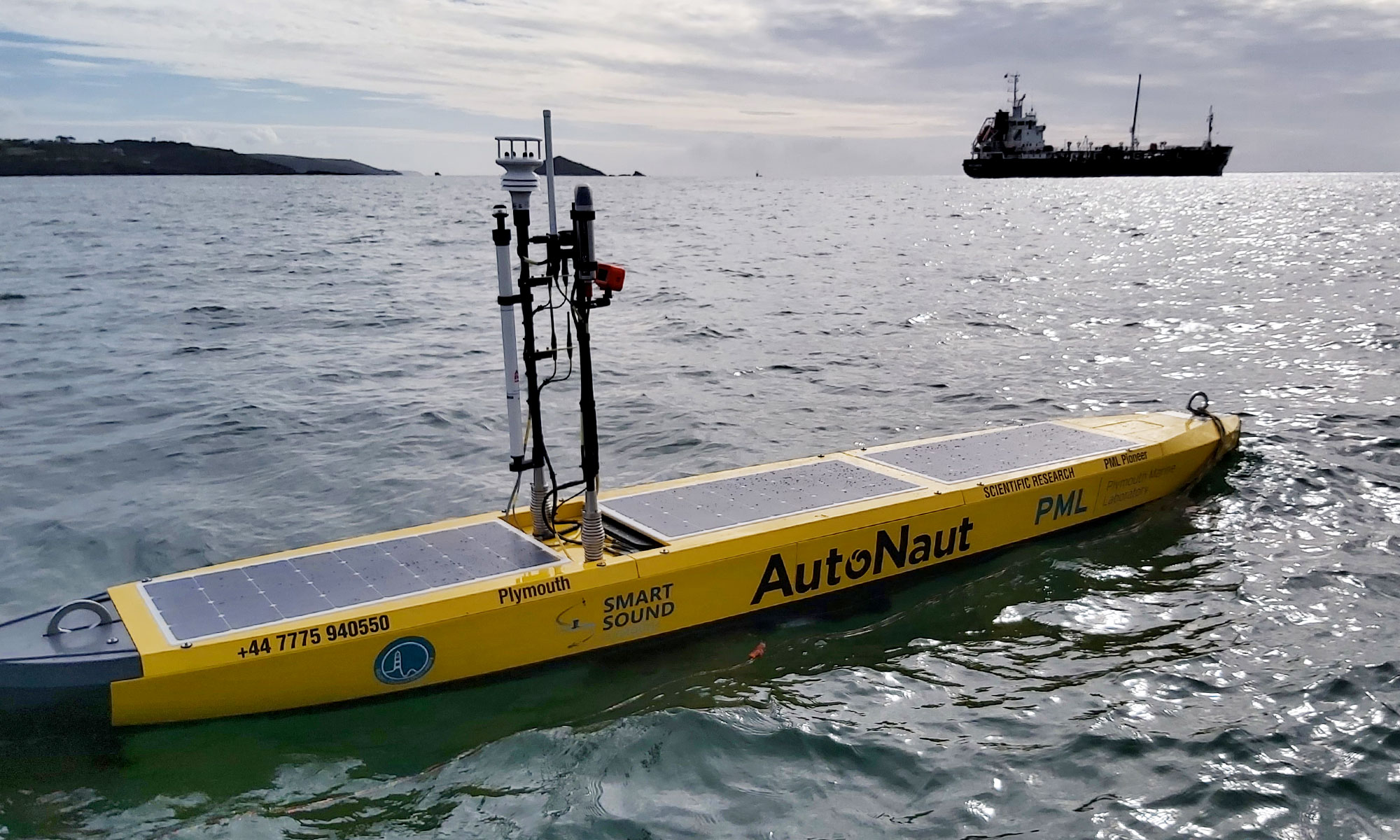Remote operators, who have shared 24-hour watches, mostly from their homes in Devon and Cornwall, gathered to celebrate the return of the tiny AutoNaut vessel they have guided via satellite since it was launched August 4th from the Scottish Association for Marine Science (SAMS) at Oban in Scotland.
The AutoNaut made her way out to the Rockall Trough off the Hebrides carrying out precision transects over moored subsurface arrays of sensors to gather contemporary surface data. Such data is vital to the scientific understanding of the sub-polar meridional overturning current which governs Europe’s weather.
Other data gathered included passive acoustic monitoring (PAM) to listen for whales and dolphins, water temperature and salinity data, and wave data from close to two Met Office buoys moored deep offshore.
From the Rockall Trough, the AutoNaut made her way south, crossing the edge of the continental shelf numerous times some two hundred miles off western Ireland, to return south of the Isles of Scilly to Penzance.
The unique wave-propulsion concept was developed in the South West, with SmartSound assisting with trials and testing from the early prototype to the fully commercialised product, including ice detection experiments. Innovate UK has also funded further work to make the AutoNaut capable of operating in the most extreme environments, such as the Southern Ocean and Arctic.
“Such long endurance in that extreme environment proves the robustness of the AutoNaut wave-propulsion system,” said Harry Spedding, General Manager of AutoNaut Ltd.
“And it has been a great demonstration to our scientific and commercial stakeholders. With near-silence, and no fuel required, AutoNaut offers a truly economic long endurance ocean going platform. Eventually this should provide Met Offices with a zero-carbon option for gathering important weather forecasting data, without the need for ships and people at sea.”
Data from the operation will now be downloaded from the vessel and made freely available to partners for analysis.
Smart Sound’s own Autonaut - the PML Pioneer - was launched earlier this year, as part of the fleet of advanced autonomous technologies and data buoys being used to create Britain’s premier proving area for designing, testing and developing cutting edge products and services for the marine sector.

Above: the PML Pioneer, Smart Sound's own AutoNaut
Based at Plymouth Marine Laboratory, Head of Smart Sound James Fishwick said, “We are delighted that this mission has proved so successful for AutoNaut as it highlights the capabilities of this cutting edge net zero technology. Through Smart Sound, our own Autonaut - the PML Pioneer - is helping expand the horizons of how we monitor the marine environment and support the development of innovative new marine technologies. This is just a taste of an exciting future ahead - for autonomous technologies and for the South West region as the UK’s leading hub for such advancements.”